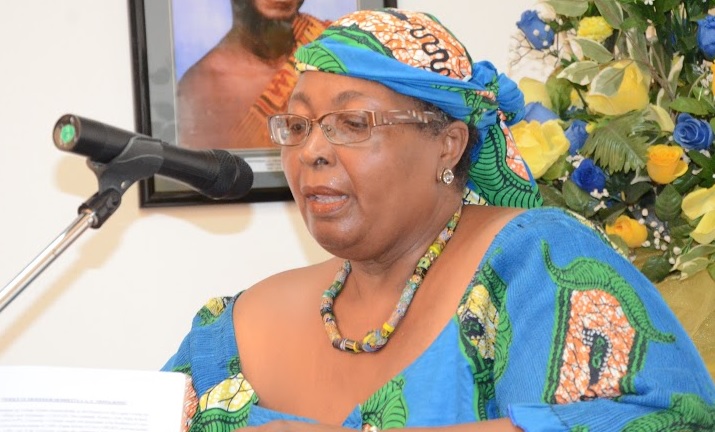
Don’t use power to abuse women, girls — Prof. Sutherland-Addy
A scholar in African Studies and girl-child education advocate, Professor Esi Sutherland-Addy, has indicted adults who use their positions of power to abuse women and girls.
She said, “If you are a teacher or community leader and you assault girls and young women, you are destroying their lives.”
Prof. Sutherland-Addy said this at the launch of “Friends of UNFPA Ghana”, a platform to raise allies to support the work on the United Nations Population Fund (UNFPA) in Ghana with a mission to promote the health, dignity and rights of women and girls around the country.
She stressed, “We need to try and reach those who are interfering in the lives of young people and show them that we won’t take it anymore.”
Prof. Sutherland-Addy urged the ‘Friends of UNFPA Ghana’ to ensure that the youth were the ones pushing the agenda so that it becomes relevant to them and also culturally sensitive.
Maternal
The Norwegian Ambassador to Ghana, Mr Gunnar A. Holm, who hosted the event at his residence, noted that a country that did not care or give priority to maternal health or sexual and reproductive health and rights could not realise its full potential.
He said the way a society treated its mothers and children said a lot about the kind of society it was, adding that the work and mandate of the UNFPA was vital for reaching the Sustainable Development Goals and “for leaving no one behind”.
Mr Holm said Norway had been and continued to be a major and consistent partner and donor to the UNFPA for decades.
UNFPA’s role
In his presentation, the Country Representative of UNFPA, Mr Niyi Ojuolape, said since 2018, UNFPA had been working towards achieving three specific transformative goals: to end the unmet need for family planning, end preventable maternal deaths and end sexual and gender-based violence and harmful practices such as female genital mutilation and child marriage.
Mr Ojuolape reiterated that the maternal mortality ratio in Ghana as of 2015 was 319 to 100,000 live births, stating that most of those deaths and injuries were entirely preventable.
UNFPA, he added, supported Ghana’s family planning programme (FP) by ensuring a steady, reliable supply of quality contraceptives, strengthening national health systems, advocating policies supportive of FP and gathering data for evidence-based work.
Furthermore, he said, UNFPA partnered young people, helping them participate in decisions affecting them and strengthening their ability to advance human rights and development issues such as health, education and employment.
Friends of UNFPA Ghana
Ms Claudia Lumor, the Chief Executive Officer (CEO) of Glitz Africa and Honorary Ambassador for UNFPA Ghana, said since 2018, she had looked for ways to get other people along to serve as allies to support UNFPA’s work in Ghana with a mission to promote the health, dignity and rights of women and girls around the country.
Over the years, she said, UNFPA had advocated and supported interventions by the government and civil society organisations aimed at improving reproductive health outcomes of women and young people, as well as promoting gender equality.
This has included ensuring access to family planning information, commodities and services; training of skilled personnel to reduce maternal mortality and morbidity rates; and eliminating sexual and gender-based violence such as rape, domestic abuse, sexual harassment and defilement, among others.
“Much has been achieved, but there is still a long way to go,” she emphasised.
Ms Lumor explained that ‘Friends of UNFPA’ was non-partisan, non-political and non-religious, with the core role to support the life-saving work of UNFPA Ghana through awareness creation, advocacy and fundraising.
“Having accepted to be a ‘Friend of UNFPA’ means that you believe that women’s rights are human rights, that women and young people in Ghana should have the capacity to be intentional about their reproductive health outcomes, that no woman should die while giving life, and that reproductive rights should be inalienable for everyone,” she said.
Commitment
The Canadian High Commissioner to Ghana, Ms Sabina Nölke, applauded UNFPA’s commitment over the last 50 years to support women and girls around the world to end maternal mortality, unmet need for family planning, gender-based violence and harmful practices.
She observed that the Government of Ghana, civil society actors, donors and other partners had also contributed to making significant strides in implementing the ICPD Programme of Action in Ghana.
The UNFPA Country Representative for Togo, Ms Josiane Yaguibou, who attended the event said “we hope to learn from the good example of our counterparts in Ghana in order to replicate it”.
